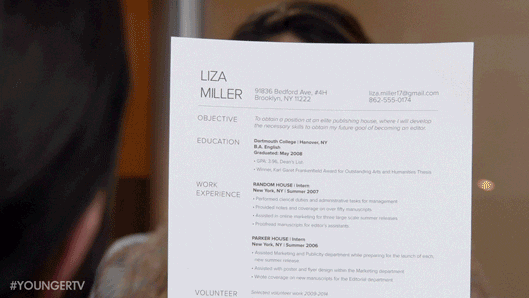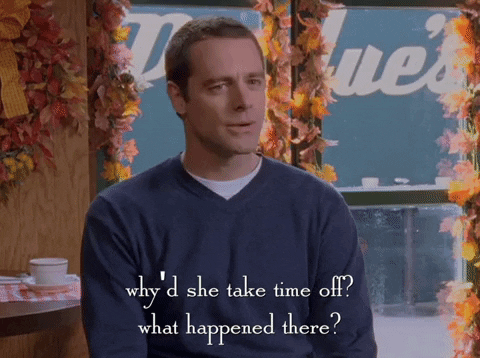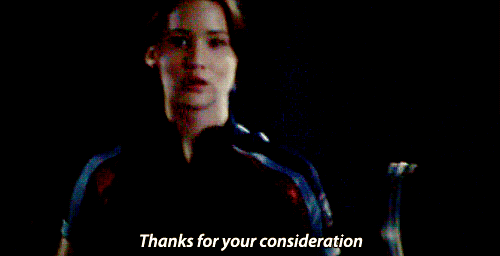
Life is unpredictable, and we’re all fully aware of it! But do we forget about this simple fact during certain situations? For instance—if someone with an ’employment gap’ is looking for jobs, they are often heavily judged on that factor. But can we for a moment cut them some slack and be open to the idea that they must have gone through something in their life which led to this? If you’re someone who has had a gap in your resume, you know the reason behind taking that step in your professional career. But sadly for such type of candidates, finding a satisfactory job after the break becomes tough and challenging.
Mixing a candidate’s personal decision of taking a break with their professional abilities and skills is just wrong on so many levels. The employer already develops a pre-set notion about the candidate which decreases the chances of the interview turning out to be positive. So, if you’re facing the same issue or know of someone going through the same difficulty, read on for some pro tips on how to tackle the situation and ace the interview.
Some Of The Common Reasons Why People Take A Break

- Pregnancy and birth of a child– Some women resume work right after their recovery, while others take some years off to raise their child/children.
- Taking care of a sick family member– If you’re the only person who can take care of a sick family member, you decide to take a break because family is more important than anything else.
- Mental health recovery– The pressure to maintain a professional image in the company leads to bottling or hiding the obvious signs of anxiety, depression or other mental health issues.
- Pursuing further education– Many people take a break to pursue further education or any other type of professional training.
- Relocation– When you move to a new city or country, it takes time for things to settle down and adjust.
- Sabbatical– People go on sabbatical to just give their mind and body a break after working for years on a stretch without taking time off.
- Laid off or previous company downsized– Finding a job after it could not be as easy and smooth as a planned change of job.
These are just some of the many reasons why people take some years off their jobs. But did you notice one common thing about all of the above reasons? They are all far from being connected to the skills and abilities of the individual. Judging a candidate because they have a gap in their work experience is just unfair, but still very common. So, let’s break down four of the most common questions asked to such candidates and how to answer them like a pro.

1. Why is there such a long employment gap in your resume?
If it’s a personal reason, we’d suggest you be upfront, clear and honest about it. Your employer will appreciate it. Try emphasizing on the skills you learnt or polished during the time off which reflect on your personal and professional image. If you struggled to find a job for a long time which resulted in the employment gap in your resume, you do not have to lie about it. Just be honest but you can always tweak it to make it sound more positive. So instead of saying that you could not land a job or no company hired you for that period, you could instead say that you were being selective about the next job you get into and seeing if it was the right fit for you.
#MMProTip: Make sure if you are bluffing you at least match the dates mentioned in your resume. Prepare for the possible questions that may follow after it so that you do not get caught in an embarrassing situation.
2. Why are there so many job hops?
Explaining employment hops can get tricky because the first red flag that comes up is the stability issue. Which is why you need to make sure you have all the correct documents, paperwork and references from your previous company for the employer to double check. Now that you have solid proof to back you up, start by explaining what your role consisted there and the achievements during that tenure. Then emphasize the skill sets that you think are transferable and will fit well in this company as well. This way you take the attention away from the job hopping part and turn the question around about your positive points.
3. If we hire you, will you provide us with the guarantee that you will be working here for long enough?
You could start off with talking about a couple of factors that the company offers and how they are a perfect match to what you’re looking for. It could be flexible hours, growth opportunities, etc. Over-committing may feel like the right thing to do, but trust us when we say this, the employers do get a hint if you’re not being very honest. So to avoid that, you can tell them you do plan to work long term depending on the growth and security that is offered by the company. Or let them know you do not have any plans on switching from this job as of now.
4. What is the reason behind starting to work again now?
For this question, we suggest you prepare for the answer in advance. Reason? If you’re not able to justify your employment gap and why you’ve decided it’s the perfect time for you to resume, you’re leaving it to the employer’s imagination. We all know how that would end up. You could instead say that it is for financial support or that you feel your time off has served its purpose very well and now you feel better than ever to resume your professional career.
#MMProTip: While answering this question, speak confidently about how you haven’t lost touch with your skill sets but instead polished them during the gap.
Lastly, believe in yourself and you will naturally ace the interview. Let us know in the comments below if you’d like a part 2 of this article.

Don’t forget to follow us at @missmalinilifestyle to never miss a beat!

